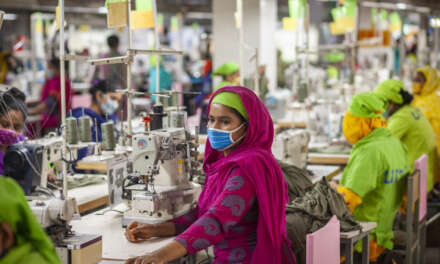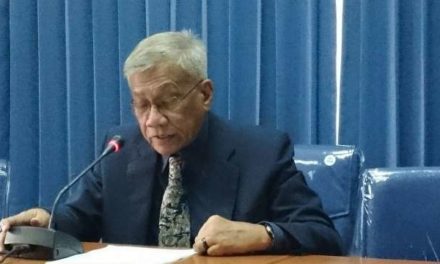Highlights of the Discussions
“A silent coup d’ etat is taking place now because of corporate power”—this was a quote from a participant that underscored one of the main issues discussed in the workshop.
Transnational Corporations have become so powerful that only few of them now control 40 percent of the global economy. TNCs have a long track record of corporate abuses—called economic and ecological crimes. Bilateral Investment treaties (BITs) and investment chapters in the Free Trade Agreements (FTAs) are part of an architecture of impunity for transnational corporations (TNCs) which are undermining the sovereignty of both developed and developing countries, democratic governance and peoples’ interests. These treaties and agreements have allowed corporations to challenge national laws that go against TNCs’ profit expectations.TNCs are known to have overturned laws and national policies including regulations to protect public services, the environment, working conditions, labor standards and health.
The following also emerged as key points in the workshop:
- TNCs have taken over all major aspects of the national economies: public services, natural resources (mining, oil extraction) and have threatened farmers and workers’ livelihood, and food sovereignty and decent work.
- TNCs are committing economic and ecological crimes and there are no mechanisms to hold them to account for these.
- FTAs & investment treaties provide an architecture of impunity that legitimises TNCs abuses; Bilateral Investment Agreements subordinate the political prerogative of states to transnational corporations.
- Through Bilateral Investment Treaties, a new ‘constitution’ for countries is being written by bureaucrats and corporations.
The impacts of TNCs’ abuses can be felt in different countries in Asia and Europe:
- In the Philippines, the Mindoro Nickel Project owned by Norwegian mining company, INTEX RESOURCES, is contaminating a major water source. A policy allowing liberalization in investments is being pursued at the expense of people’s rights over their resources and of the ecological integrity of the island province, while also threatening food security.
- Indonesia is a main target for foreign investment: 93 percent of total land territory is under the control of big companies in the areas of mineral and coal mining, oil and gas, forestry, oil palm plantation.
Investment in Indonesia is dominated by foreign companies: 95 percent of mineral investments are made by two US companies (Freeport McMoran and Newmont Corporation) and 85 percent of investments in oil and gas exploitation; 48 percent of oil and gas by Chevron and Exxon Mobile, while 75-80 percent of coal exploitation, 65 percent of plantation and 65 percent of banking industry are also controlled by foreign companies.
Indonesia has been liberalizing investments and increasing protection of investors: Government has signed FTAs and various BITs. Using investor-state dispute settlement, corporations have been suing Indonesia (Churchill Company and Karaha Bodas Corporation (KBC), resulting in Indonesia having to pay out 261 million USD in public money.
- In Malaysia, TNCs have taken to actively sacking workers standing up for their rights and are suing human rights defenders, including community leaders standing up for these workers, as well as members of media highlighting their plight. Migrant workers are particularly affected—wrongful termination has meant a retraction of their work permit and deportation, closing all their avenues for legal redress.
- Europe is increasingly not just a source, but also a receptor of FDI, and governments have been under increasing threat posed by investment arbitration cases. Energy corporation Vattenfall is currently suing the state of Germany for at least 700 million Euros over its decision to phase out nuclear energy by year 2022. Such sums exert significant pressure even on the public budget of large developed states like Germany and the threat of investment arbitration also obstructs the use of policy to opt out of the crisis.
- The fact that Philip Morris has been able to sue Uruguay and Australia at international courts is a direct assault on governments’ attempts to protect public health.
However, citizens all over the world have been developing new forms of solidarity and taking resistance struggles against the domination of corporations to new levels.
Thus the call is for governments of Asia and Europe to put the interests of people before corporate profit and greed. The demand is for the immediate halt of negotiations for new investment agreements: BITs and FTAs, and the termination of existing ones. It is also recommended that governments without chance to terminate the agreements re-negotiate them and exclude investor-state dispute settlement mechanism. Government has to move away from corporate social responsibility and instead impose binding obligations on corporations related to human, economic, environmental, labor and social rights.
Recommended Actions/Campaigns
There are two current campaigns (Global campaign against TNCs, EU-ASEAN FTA campaign) where these issues are being addressed and people can join. Here are some concrete proposals to take up in the context of current campaigns.
- TNCs can be sensitive to social pressure. The proposal is to have joint European and Asian civil society cross-solidarity when European corporations that are violating rights and using their powers to disregard regulations and welfare of people and the environment in Asia. The case of Churchill Mine against Indonesia can be an initial issue to work on together.
- Strengthen the calls to our own governments to terminate existing agreements and pledge to not sign new ones. As a second best option is to demand that our governments exclude the investor-state dispute settlement process from their investment agreements.
- Strengthen campaign outreach: reach out to (temporary) workers locally, nationally and trans-nationally, and to communities affected by incoming investments.
- Organize Asia-Europe worker and trade union solidarity campaigns targeting TNCs/international brands for human rights violations in their production chains. Online campaign and creative branding of the campaign (ex. Lipton Tea = Casualtea, your rights are sure to be violated) can be a good initiative.
- Develop cross-regional proposals for alternatives to the current trade and investment model and for binding obligations for corporations.
- Build common agenda and common actions in Asia and Europe (e.g. once-a-month name and shame campaign against corporations).
- CSOs should continue to lobby, through the AEPF, the rejection of the ASEAN Minerals Cooperation Plan and the EU Raw Materials List.
Tools for Action
A first step of overriding importance is to coordinate the sharing of information and to make effective use of platforms for strategizing. There are several tools that we can use to strengthen Asia-Europe coordination and common work on these issues. We invite everyone to share ideas.
Website: www.stopcorporateimpunity.org
E-lists:
To subscribe, you can write to Joseph Purugganan [email protected] and Cecilia Olivet [email protected]








